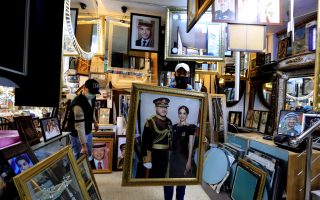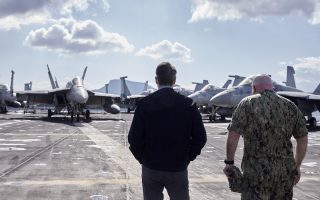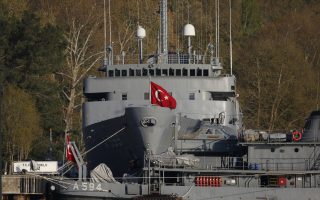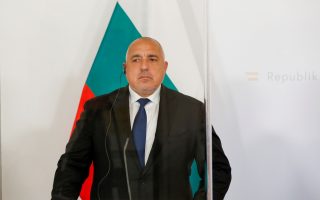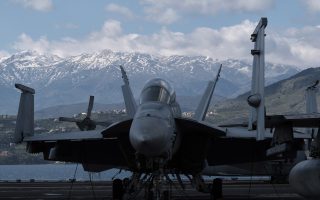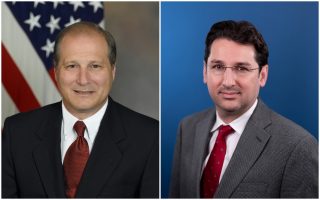Set the world order and avoid the next cold war
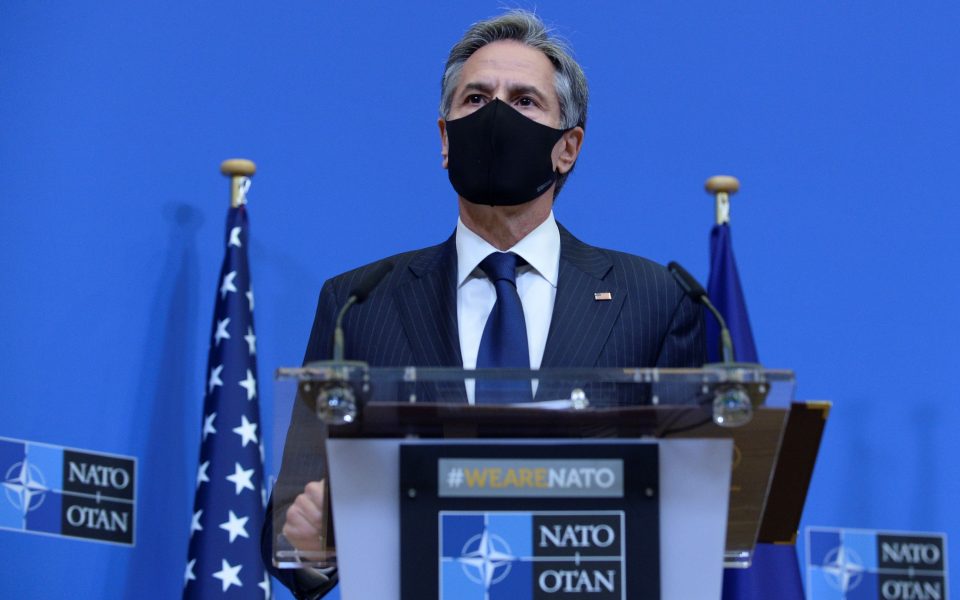
1. Unlike his predecessor, President Joe Biden confirmed NATO’s role as a pillar of transatlantic relations. During his visit to NATO Headquarters in Brussels, Secretary of State Tony Blinken emphasized the importance of consulting with the European allies mainly on China and Russia. The stakes are high.
A) China is a critical commercial, economic, shipping and financial partner for many European allies. It is also a catalyst in addressing climate crisis and the global pandemic. As a permanent member of the UN Security Council, China’s role is critical in co-shaping the world order. Its predictable rise and superpower ambitions now make it a strategic adversary for the US. Yet it is no secret that the alignment of Europeans is neither automatic nor linear. Notwithstanding individual state interests invested in “dealing with China,” NATO’s common position is reflected in the joint declarations.
China’s Asian-Pacific interests as well as its global self-labeled “soft power” posture are projected by adequate political, economic and swiftly increasing military capabilities. Nowadays, it is hard to draw a line between cooperation, engagement and deterrence. Economic, energy and financial interdependence are the basics of China’s bonds with its partners. Today, it is rather impossible for the United States alone to prevent China’s ascent to the top.
It is not surprising that the 2,500-years-old “Thucydides Trap” syndrome is now becoming a useful tool of strategy. Nevertheless, America’s global soft-power (smart-power indeed) is enormous. If pressure upon hesitant allies becomes the mainstream policy option, the result could be the shaping of a group of non-willing key allies. A third powerful pole is already taking shape: a politico-military arrangement including China, Russia and others.
B) Russia’s assertiveness under President Vladimir Putin includes prestige, power politics and territorial ambitions. Russia is today an important energy, trade and economic partner for many NATO allies. Russia has also swiftly sided with NATO allies – the US and France included – in the fight against jihadi terrorism. Yet, it is a hard power antagonist in Eurasian affairs. The Russian Federation, a permanent member of the UN Security Council, is focusing on the European theater of energy, political and military operations and since 2014 in the greater Middle East and North Africa area (MENA).
Contrary to the legitimate apprehension, perceptions and strong sentiments among NATO allies and the European Union, Russia considers itself as a shareholder of the European heritage. Russia’s invasion and annexation of Crimea and the ongoing moves against Ukraine’s sovereignty are unacceptable. They are in violation of the UN Charter, the Helsinki Final Act and the Paris Charter for a New Europe provisions. They constitute a blow to international law and European values and order. Russia dramatically undermines its role as a stakeholder in the European security and cooperation process and architecture. The US, NATO and the European Union’s reactions and sanctions are justified.
2. Russia followed the precedent of the Turkish invasion and occupation of Cyprus. The formal annexation by Turkey of the occupied Cypriot territories is a principal policy option for Ankara. Today, Turkey’s autocratic Recep Tayyip President Erdogan addresses the Turkish Cypriots as his own subjects, including on religious issues. Turkey’s impunity and immunity undermine the credibility of US-NATO-EU policies related to Russia.
It would be a mistake to snub Russia, a big power. A framework of a “principled cooperative engagement,” with specific conditions attached, could be a policy option; if rules are to be respected by the Kremlin. Russia should change course and adopt policies in conformity with the UN Charter and the European political and security architecture (Helsinki Final Act, Paris Charter for a New Europe etc).
3. NATO: There is a basic prerequisite before engaging the process with Russia. It pertains exclusively to NATO. Against allied interests, Turkey and Russia established unprecedented defense agreements and confidential bonds, a nuclear power plant included. The S-400 anti-aircraft weapon system is a genuine threat for NATO as a whole. NATO’s credibility stems from the North Atlantic Treaty. Key articles 4-5 are undermined by Turkey’s illegal and aggressive activities against Greece and occasionally against other NATO allies. Throughout 2020, Turkey challenged the collective defense and security foundations.
Furthermore, NATO Treaty articles 1 and 2 clearly define that along with interests, principles and values are the foundations of our collective engagement:
Article 1 stipulates, “The Parties undertake, as set forth in the Charter of the United Nations, to settle any international dispute in which they may be involved by peaceful means in such a manner that international peace and security and justice are not endangered, and to refrain in their international relations from the threat or use of force in any manner inconsistent with the purposes of the United Nations.” The NATO Charter’s principles are Treaty obligations. Article 1 entails two fundamental obligations for the member-states:
First: to settle their international disputes by peaceful means so that international peace, security and justice are not endangered.
Second: to refrain in their international relations from the threat or use of force, in any manner inconsistent with the UN Charter. NATO’s credibility is jeopardized when Turkey uses military force or threatens to use it (casus belli) against others – Greece, a NATO ally, included.
Article 2 mandates, “The Parties will contribute toward the further development of peaceful and friendly international relations by strengthening their free institutions…” Strengthening democratic and free institutions is a Treaty obligation. Autocracy and human rights abuses are incompatible with NATO’s Charter and with our efforts for the development of “peaceful and friendly international relations.” NATO is undermined as long as democracy, freedom of religion, press and expression and the right to be different are at gunpoint in Turkey.
4. Start from the UN Security Council: Not surprisingly, the world is characterized by power politics. The bipolar world order collapsed; yet the superpower monopoly is challenged. We are in search of a new world order. The Biden administration’s much anticipated “reset” of multilateralism has a name: the United Nations. It is necessary for restoring the international security system and reshaping the world order.
It is a common secret that synergy is missing among the five permanent members (P5) of the Security Council. Their antagonism stems from a different hierarchy of values and from interests. Adherence to the principles and purposes enshrined in the United Nations Charter has eroded. As long as the Security Council (P5) is unable to act as mandated by the Charter, it would be impossible to prevent and counter threats against peace, stability and security. The “zero-sum game” calculus cannot become the desired world order equilibrium.
Synergy is the condition for restoring the world order. In the search for some common ground, the United States may wish to test the waters by hosting a “closed doors retreat” of the P5. It could eventually result to the display of the American “smart power” (hard+ soft + principles and values) in restoring the world order. Coping with the pandemic, climate change and unity in fighting against international terrorism could be a starting point.
5. Get advice from Thucydides: Cold peace is the last step before a new cold war. In his “History of the Peloponnesian War,” Thucydides refers to the argument used by the Athenian ambassadors warning the Spartans against starting the war:
“…Consider before you enter the vast influence of accident in war before you start it. For a long war as it continues for the most part ends in catastrophe… It is a common mistake in going to war to begin at the wrong end, to act first and wait for disaster to negotiate…” (Thucydides 1.78)
This message is still valid.
Alexandros P. Mallias is former ambassador of Greece to Washington, DC (2005-09).
